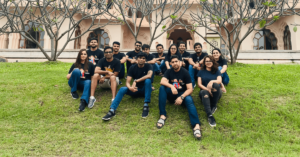Online games are banned in the state since October 5th, 2021
The Karnataka State Chess Association (KSCA) has said that sponsorships from online gaming companies for chess tournaments have dried up
Recently, IndiaTech wrote to MeitY suggesting framing of a ‘Code for Responsible Online Gaming’

Karnataka government’s decision to ban online gaming has adversely affected the chess ecosystem in the state as it has resulted in lack of corporate sponsorship from online skill gaming companies, according to the Karnataka State Chess Association (KSCA).
Noting that the ban also halted the games of skills also, D.P Anantha, president, KSCA today (December 14th, 2021) has sought amendments to the law to allow games of skill.
“The ban has hindered corporate sponsorships, especially from online skill gaming companies affected by the bill, and in turn has affected organisations like KSCA,” said D.P Ananth, president, KSCA.
In a statement, the association said that chess is among the most popular sports in Karnataka with players across all parts of the state and has more than 6,000 registered players.
It noted that the ecosystem of the game in the state is in uncertainty as sponsorships are drying up.
In September 2021, the Karnataka government passed a bill that banned online ‘games of chance’. Operating such games, sheltering such operations, and abetting and participating in such online games both cognisable and non-bailable is an offence, according to the bill.
The offence would lead to a prison term of up to three years and a fine of up to INR 1 Lakh under the Karnataka Police (Amendment) Act 2021.
The amendment came into effect on October 5th, 2021.
No Clear Nationwide Regulation
The online gaming sector has been thriving in India of late, no clear regulation across the country has posed challenges to the segment.
In August, Tamil Nadu had also floated an ordinance to prohibit games of skill (if played for stakes) as wagering or betting in cyberspace led to online gaming companies scrambling to obtain a stay.
Later, the Madras HC struck down the amendments as overbearing, arbitrary and pernicious and is said to be working on a viable framework for all stakeholders.
In October, Dream11 announced the suspension of its operations in Karnataka after a complaint was lodged against its founders — Bhavit Sheth and Harsh Jain.
Recently, IndiaTech, industry body representing India’s consumer internet startups, unicorns and investors wrote to the Ministry of Electronics and IT (MeitY) suggesting framing of a ‘Code for Responsible Online Gaming’.
It has suggested that the code for online gaming should comprise policies that govern age or genre based classifications, AI based interventions to monitor and reduce potential addictions and cut offs for money spends and wins. It has also suggested that the guidelines should include no bots policy to be fair to players, cultural sensitivities among others.
The online gaming sector has made rapid strides amid the pandemic. The online gaming market in India grew at a CAGR of 17.3%, from $543 Mn in 2016 to $1.027 Bn in 2020.






![Read more about the article [Funding alert] Hiration raises Rs 21 Cr led by Prime Venture Partners, Venture Highway, and Y Combinator](https://blog.digitalsevaa.com/wp-content/uploads/2021/08/Hiration-43-1629360035131-300x150.png)
![Read more about the article [Funding alert] Stashfin raises $270M in Series C round from global investors](https://blog.digitalsevaa.com/wp-content/uploads/2022/06/Imageff9v-1617515639633-300x150.jpg)
![Read more about the article [Funding alert] KoineArth raises $1.8M in Pre-Series A round led by YourNest](https://blog.digitalsevaa.com/wp-content/uploads/2021/02/165-VC-funding1552277843560-300x150.jpg)
